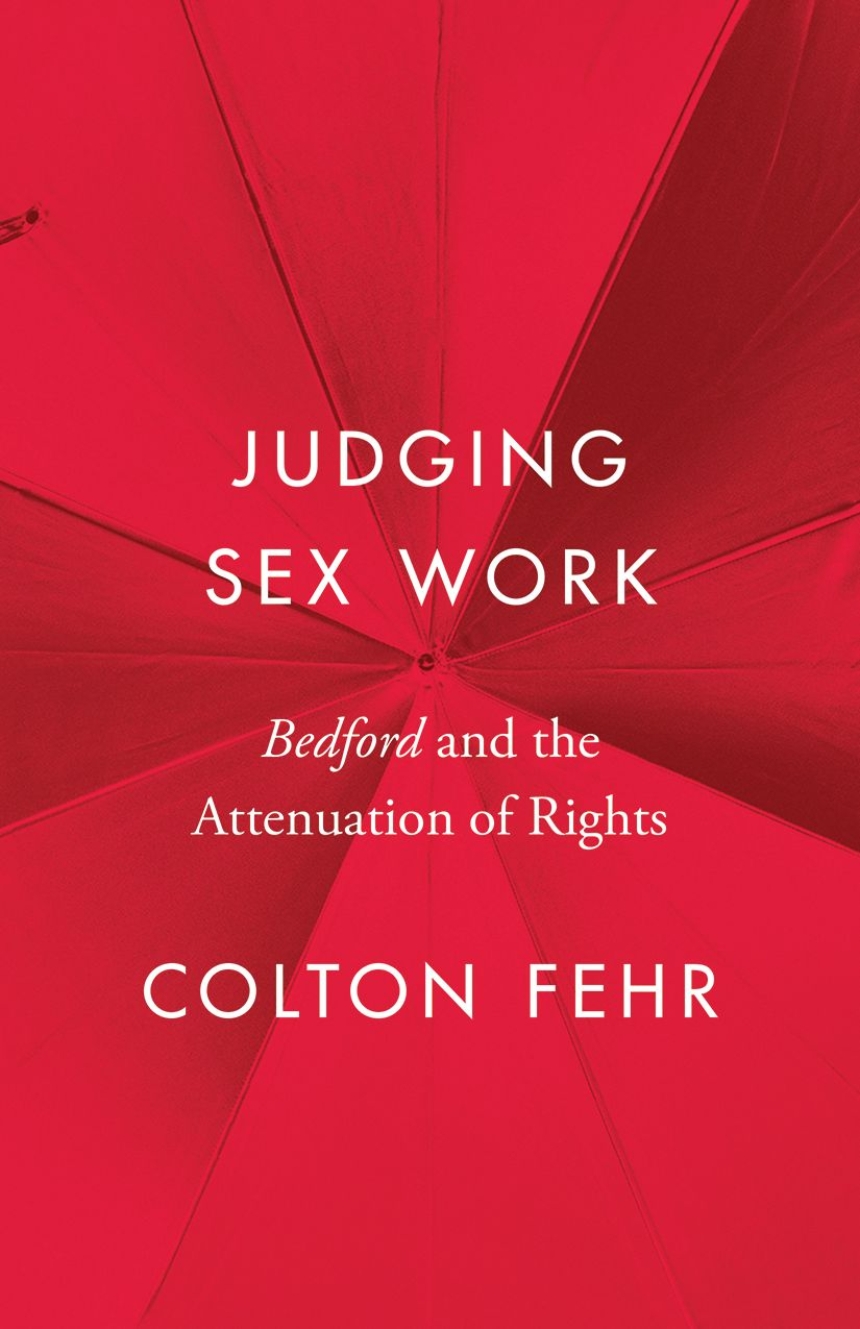9780774869768
Distributed for University of British Columbia Press
Judging Sex Work
Bedford and the Attenuation of Rights
How a court case ruling spurned a change in law that is presented as being helpful to sex workers, but in reality, can be harmful.
In Canada (AG) v. Bedford, the Supreme Court of Canada struck down prohibitions against communicating in public for the purpose of sex work, living on its avails, and working from a bawdy house. Its narrow constitutional reasoning enabled Parliament to respond by adopting the “end demand” or “Nordic Model” of sex work regulation, an approach widely criticized for failing to ensure sex worker safety.
Judging Sex Work takes stock of the Bedford decision, arguing that the constitutional issue was improperly framed. Because the most vulnerable sex workers have no realistic choice but to commit the impugned offenses, they already possess a legal defense. The constitutionality of the sex work laws should therefore have been assessed by their application to those who choose sex work, an approach that militates in favor of upholding these laws based on current jurisprudence. While this approach leads to the former restrictions on sex work being constitutional, it also has the salutary effect of forcing litigants to consider a more pressing question: Can sex work be rationalized as a criminal matter at all?
In Canada (AG) v. Bedford, the Supreme Court of Canada struck down prohibitions against communicating in public for the purpose of sex work, living on its avails, and working from a bawdy house. Its narrow constitutional reasoning enabled Parliament to respond by adopting the “end demand” or “Nordic Model” of sex work regulation, an approach widely criticized for failing to ensure sex worker safety.
Judging Sex Work takes stock of the Bedford decision, arguing that the constitutional issue was improperly framed. Because the most vulnerable sex workers have no realistic choice but to commit the impugned offenses, they already possess a legal defense. The constitutionality of the sex work laws should therefore have been assessed by their application to those who choose sex work, an approach that militates in favor of upholding these laws based on current jurisprudence. While this approach leads to the former restrictions on sex work being constitutional, it also has the salutary effect of forcing litigants to consider a more pressing question: Can sex work be rationalized as a criminal matter at all?
304 pages | 5.5 x 8.5 | © 2024
Landmark Cases in Canadian Law
Law and Legal Studies: Law and Society, The Constitution and the Courts

